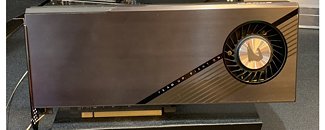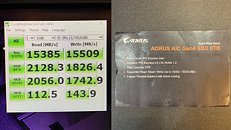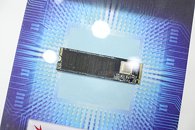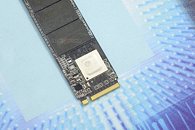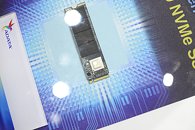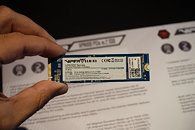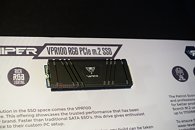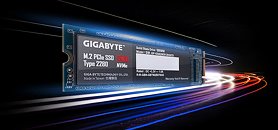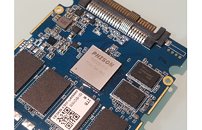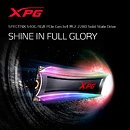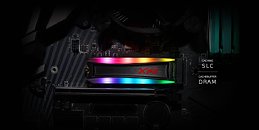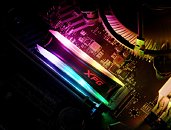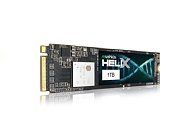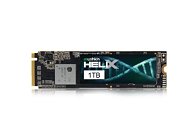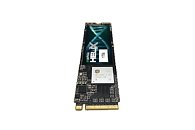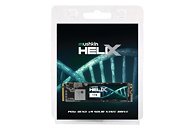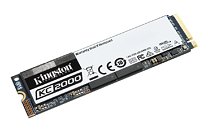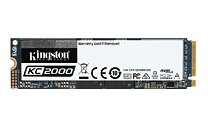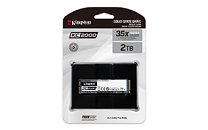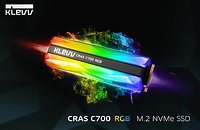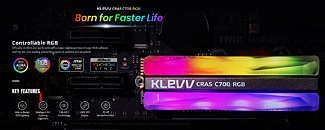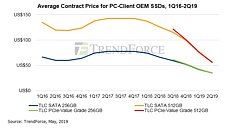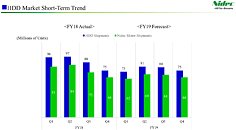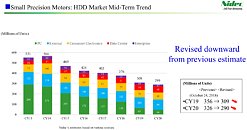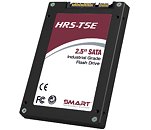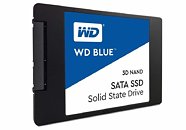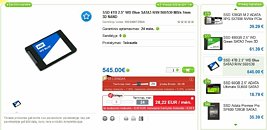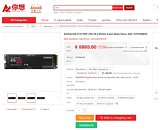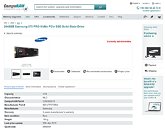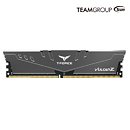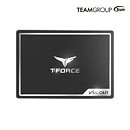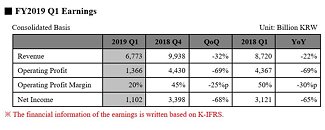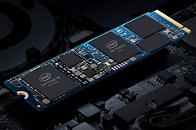
Gigabyte Shows Off 15 GB/s PCIe 4.0 SSD
With AMD chipset based motherboards like X570 and next-generation Ryzen 3000 series CPUs delivering the 4.0 version of the PCIe protocol for consumers, products based on the faster protocol are bound to take advantage of its improvements - especially in terms of better bandwidth.
At their Computex booth, Gigabyte showed off some pretty impressive results of their PCIe 4.0 based SSD card. The so-called "Auros AIC Gen4 SSD" is a performance monster. It is able to pack up to four PCIe 4.0 M.2 SSDs that can go up to 2 TB of density each, for a maximum 8 TB total storage. Put them in RAID 0 configuration, though, and you will get some amazing performance numbers. Gigabyte demonstrated speeds exceeding 15 GB/s in sequential reads and writes, providing much more bandwidth than what has ever seen before ina consumer-geared product. The SSD comes with an aluminum shroud with pre-applied thermal pads to facilitate heat dissipation. Additionally, there is a blower fan attached to the card to keep a constant flow of fresh air, which seems like a must if you're packing four M.2 drives inside a tiny aluminum case.
At their Computex booth, Gigabyte showed off some pretty impressive results of their PCIe 4.0 based SSD card. The so-called "Auros AIC Gen4 SSD" is a performance monster. It is able to pack up to four PCIe 4.0 M.2 SSDs that can go up to 2 TB of density each, for a maximum 8 TB total storage. Put them in RAID 0 configuration, though, and you will get some amazing performance numbers. Gigabyte demonstrated speeds exceeding 15 GB/s in sequential reads and writes, providing much more bandwidth than what has ever seen before ina consumer-geared product. The SSD comes with an aluminum shroud with pre-applied thermal pads to facilitate heat dissipation. Additionally, there is a blower fan attached to the card to keep a constant flow of fresh air, which seems like a must if you're packing four M.2 drives inside a tiny aluminum case.
